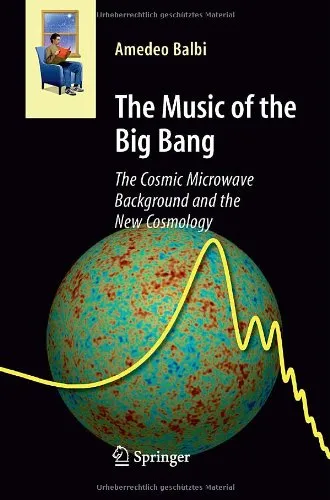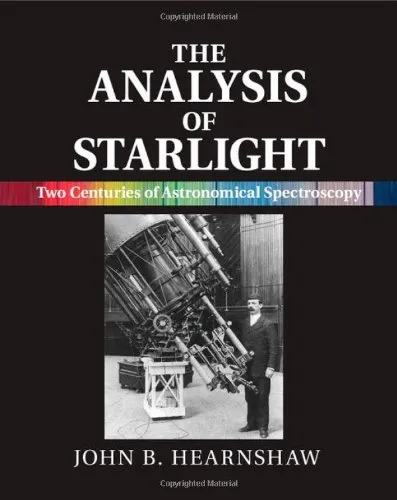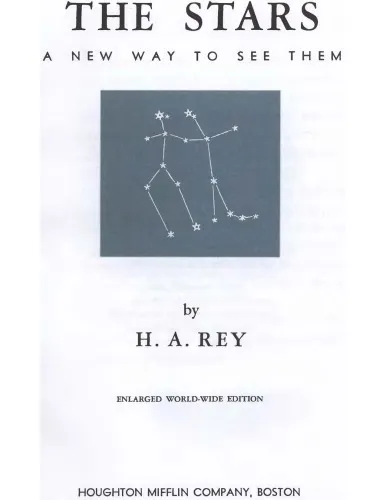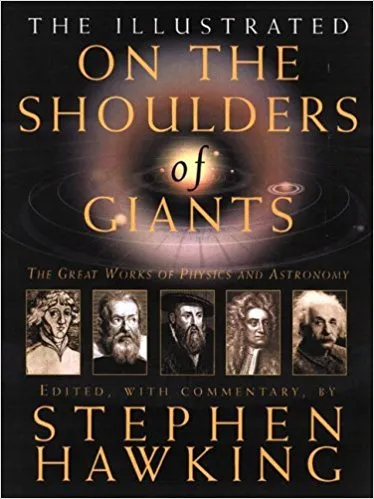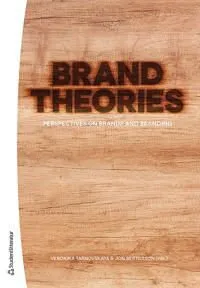Theories for Everything: An Illustrated History of Science : from the Invention of Numbers to String Theory
4.5
بر اساس نظر کاربران

شما میتونید سوالاتتون در باره کتاب رو از هوش مصنوعیش بعد از ورود بپرسید
هر دانلود یا پرسش از هوش مصنوعی 2 امتیاز لازم دارد، برای بدست آوردن امتیاز رایگان، به صفحه ی راهنمای امتیازات سر بزنید و یک سری کار ارزشمند انجام بدینکتاب های مرتبط:
معرفی کتاب «Theories for Everything: An Illustrated History of Science : from the Invention of Numbers to String Theory»
کتاب «Theories for Everything» یک سفر هیجانانگیز و جامع به تاریخ علوم است که به بررسی پیشرفتهای علمی مهم از ابتدای ابداع اعداد تا نظریههای جامعتر مانند String Theory میپردازد. این اثر توسط John Langone، Bruce Stutz و Andrea Gianopoulos تألیف شده و ترکیبی از محتوای آموزنده، تصاویر زیبا و داستانهای تاریخی است که به صورت قابلفهم و جذاب ارائه شدهاند.
داستان تاریخ علم در این کتاب به گونهای روایت میشود که هم برای دانشجویان و علاقهمندان به علوم پایه و هم برای خوانندگانی که به دنبال درک عمیقتر از جهان و قوانین حاکم بر آن هستند، مناسب باشد. این اثر نشان میدهد که چگونه توسعه مفاهیم علمی نه تنها به درک بهتر از طبیعت، بلکه به تغییرات زیربنایی در تفکر انسانی منجر شده است.
خلاصهای از کتاب
کتاب «Theories for Everything» به مطالعه رشد و تحول علم از دوران باستان تا عصر مدرن میپردازد. این اثر از آغاز پیدایش اعداد، توسعه ریاضیات، اختراع قوانین فیزیک توسط افرادی مانند نیوتون و گالیله و پیدایش علم شیمی و زیستشناسی روایت میکند. همچنین، موضوعاتی همچون انقلاب کوانتومی، نظریه نسبیت اینشتین و در نهایت نظریههای پیشرفتهتری مانند String Theory و کیهانشناسی بررسی شدهاند. این کتاب تلاش میکند تا پیچیدگیهای این نظریهها را به زبان ساده برای خوانندگان روشن کند و تصویری جامع از تغییرات علمی در طول تاریخ ارائه دهد.
یکی از جذابیتهای خاص این کتاب استفاده از تصاویر، نمودارها و توضیحات بصری است که به فهم عمیقتر مفاهیم انتزاعی کمک میکنند. روایتها نیز با داستانهای زندگی دانشمندان بزرگ و چالشهایی که با آنها روبرو شدهاند، غنای بیشتری یافتهاند.
یادگیری کلیدی از کتاب
- درک تاریخ توسعه نظریههای علمی و تأثیرشان بر جامعه انسانی.
- شناخت مفاهیم پیچیدهای مانند Quantum Mechanics و String Theory به زبان ساده و قابلفهم.
- ارائه درک عمیق از تعامل میان علم و فلسفه در مسیر توسعه دانش بشری.
- معرفی برجستهترین دانشمندان و نظریههای علمی که دنیای ما را تغییر دادهاند.
جملات مشهور از کتاب
«علم، سفری بیپایان است به سوی درک بهتر از جهان. هر نظریه جدید، دریچهای به سوی پرسشهای تازه است.»
«هر کشف علمی، همچون راهحلی برای یک معما است که هزاران معمای جدید را به همراه خود میآورد.»
«شگفتانگیزترین دستاوردهای علمی آنهایی هستند که چیزی عادی و روزمره را به پدیدهای شگفتانگیز تبدیل میکنند.»
چرا این کتاب اهمیت دارد؟
کتاب «Theories for Everything» نه تنها یک منبع آموزش علمی غنی است، بلکه به ما کمک میکند تا اهمیت علم در زندگی روزمره را درک کنیم. این کتاب به یاد ما میاندازد که علم، نه تنها مجموعهای از اطلاعات، بلکه وسیلهای برای درک بهتر از جهان و آینده بشریت است.
با خواندن این کتاب، خواننده درمییابد که چگونه علم، از طریق نظریههای پیشگامانهای مانند Relativity و Quantum Theory، توانسته است مرز فهم و دانش انسانی را گسترش دهد. در نهایت، «Theories for Everything» یک مرجع اساسی برای هر کسی است که میخواهد درباره تاریخ و آینده علم به شکلی جامع و الهام بخش اطلاعات کسب کند.
Theories for Everything: An Introduction
In the vast landscape of human knowledge, few pursuits are as compelling, intricate, and transformative as the journey through the history of science. "Theories for Everything: An Illustrated History of Science: From the Invention of Numbers to String Theory" invites readers on an extraordinary expedition across centuries of scientific thought and discovery. Co-authored by John Langone, Bruce Stutz, and Andrea Gianopoulos, this book serves as both a celebration of scientific achievement and a guide to understanding the profound ideas that shape the modern world. Accessible yet intellectually stimulating, it unpacks some of the most significant advancements in human history, from primitive counting systems to the highly abstract frameworks of contemporary physics.
The purpose of this book is not merely to chronicle different scientific theories but to provide an integrated narrative that connects these ideas, their origins, and their impact on society. With engaging illustrations enhancing the storytelling, the work delves into major milestones, presenting the evolution of knowledge as a tapestry of insights, breakthroughs, and ingenuity. In an age when science continues to evolve at an unprecedented pace, this book is essential reading for anyone seeking to appreciate the foundations of our understanding of the universe.
Detailed Summary of the Book
"Theories for Everything" spans a breathtaking array of topics, masterfully unpacking the complex journey of scientific inquiry across time and cultures. The book begins with the humble origins of human curiosity, focusing on early mathematical systems and the invention of numbers. From there, it covers ancient civilizations' efforts to interpret natural phenomena, such as the Greek pursuit of a cosmological understanding and their development of geometry.
The narrative then transitions into groundbreaking moments that defined entire eras. From Galileo's revolutionary use of the telescope to Isaac Newton's laws of motion, readers witness how the Enlightenment era reshaped our approach to nature and the universe. These foundational advancements pave the way for the enormous leaps of the 20th century, from Einstein's theory of relativity to the intricate workings of quantum mechanics.
The book culminates in today's most pressing scientific debates and ideas, such as string theory and the ongoing quest for a unified "theory of everything." Each section is enriched with anecdotes and examples that illustrate the significance of these discoveries while guiding readers toward a profound appreciation of how they continue to shape modern life.
Key Takeaways
- The history of science is a dynamic and interconnected web of discoveries rather than isolated events or ideas.
- Scientific progress is often born of collaboration across cultures and generations, spanning languages, beliefs, and methodologies.
- Modern scientific theories, no matter how complex, are rooted in centuries of simpler ideas developed through observation, experimentation, and refinement.
- By understanding the origins and evolution of scientific thought, we gain an appreciation for how these ideas have shaped human societies and civilizations.
- The unanswered questions of science today serve as inspiration for future generations of thinkers, dreamers, and innovators.
Famous Quotes from the Book
"Science is a shared language across humanity, one spoken not with words alone, but with numbers, observations, and ideas."
"Theories are not absolute truths but evolving frameworks, constantly shaped by new evidence and fresh perspectives."
"Understanding the past of science is key to envisioning its future. Each discovery is both an end and a beginning."
Why This Book Matters
In a world increasingly driven by technology and scientific advancements, it is important to look back at the origin and evolution of ideas that brought us here. "Theories for Everything" not only documents these advancements but also contextualizes them within their historical moments, allowing readers to grasp their broader significance.
What sets this book apart is its ability to simplify and clarify some of the most intricate and challenging scientific principles without diluting their essence. Through narrative storytelling and engaging illustrations, it equips readers to approach the scientific world with curiosity and confidence.
By exploring the humanity behind scientific discovery—highlighting the thinkers, their struggles, and perseverance—this book reminds us that the pursuit of knowledge is a universal and timeless endeavor. Whether you are a student, a seasoned researcher, or simply an inquisitive reader, "Theories for Everything" is an illuminating and indispensable resource.
دانلود رایگان مستقیم
شما میتونید سوالاتتون در باره کتاب رو از هوش مصنوعیش بعد از ورود بپرسید
دسترسی به کتابها از طریق پلتفرمهای قانونی و کتابخانههای عمومی نه تنها از حقوق نویسندگان و ناشران حمایت میکند، بلکه به پایداری فرهنگ کتابخوانی نیز کمک میرساند. پیش از دانلود، لحظهای به بررسی این گزینهها فکر کنید.
این کتاب رو در پلتفرم های دیگه ببینید
WorldCat به شما کمک میکنه تا کتاب ها رو در کتابخانه های سراسر دنیا پیدا کنید
امتیازها، نظرات تخصصی و صحبت ها درباره کتاب را در Goodreads ببینید
کتابهای کمیاب یا دست دوم را در AbeBooks پیدا کنید و بخرید
1351
بازدید4.5
امتیاز0
نظر98%
رضایتنظرات:
4.5
بر اساس 0 نظر کاربران
Questions & Answers
Ask questions about this book or help others by answering
No questions yet. Be the first to ask!


